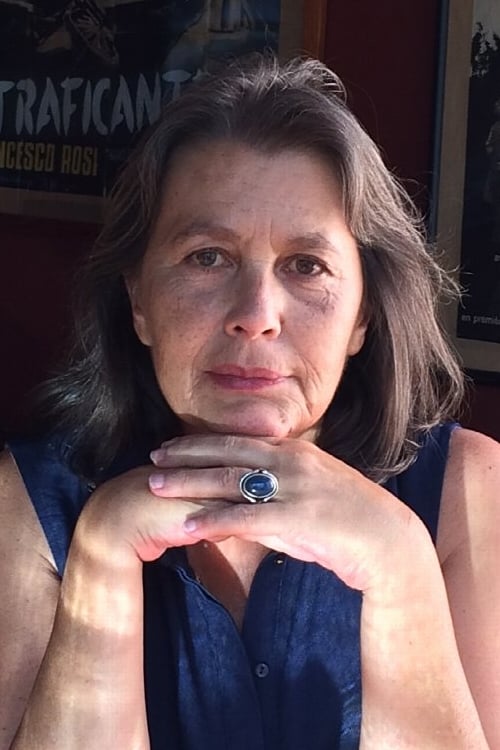
Rita Azevedo Gomes
출생 : 1952-01-01, Lisbon, Portugal
약력
Rita Azevedo Gomes (born c. 1952) is an award-winning Portuguese film director.
Her career dates from the early 70s and spans cinema, theatre and opera. In 2001 she presented her work in various film festivals including Venice, Montreal, and Turin. Altar (2002) won the prize for best director at the Angra do Heroísmo international film festival and premiered in Portugal in September 2002. This was followed in 2004 by A 15ª Pedra: Manoel de Oliveira e João Bénard da Costa em Conversa Filmada, which was shown at the Marseille, Procida and Doclisboa film festivals in 2005, as well in The Ancient Art Museum and Serralves Foundation. Also in 2005, she was commissioned by Faro Capital da Cultura to direct The Conquest of Faro, which was presented at the 2005 Turin Film Festival and had its national premiere in Faro in December 2005. A Colecção Invisível (The Invisible Collection, 2009) will have its premier in Lisbon at the Cinemateca Portuguesa. Her most recent film, A Portuguesa (The Portuguese), inspired in Robert Musil’s novel Die Portugiesin, is in post-production.

Rómulo's quiet routine in Rio de Janeiro changes overnight when an accident starts a wave of absurd events. Far from there, Orlando, his twin brother and rare works dealer tries to buy the book of a Brazilian student with financial problems. The twins' lives will be on a collision course with the arrival of a mysterious manuscript.

Editor
호르헤는 에리크 로메르가 쓴 유일한 희곡인 "내림 마장조 삼중주"(1987)를 영화로 제작하고 있다. 아델리아와 폴은 이혼한 지 오래다. 어느 날, 아델리아가 폴을 찾아온다. 이들은 1년 동안 일곱 번 만난다. (제23회 전주국제영화제)

Writer
호르헤는 에리크 로메르가 쓴 유일한 희곡인 "내림 마장조 삼중주"(1987)를 영화로 제작하고 있다. 아델리아와 폴은 이혼한 지 오래다. 어느 날, 아델리아가 폴을 찾아온다. 이들은 1년 동안 일곱 번 만난다. (제23회 전주국제영화제)

Director
호르헤는 에리크 로메르가 쓴 유일한 희곡인 "내림 마장조 삼중주"(1987)를 영화로 제작하고 있다. 아델리아와 폴은 이혼한 지 오래다. 어느 날, 아델리아가 폴을 찾아온다. 이들은 1년 동안 일곱 번 만난다. (제23회 전주국제영화제)

Director
Short film released through the Gestos & Fragmentos platform during the COVID-19 quarantine.

Director
Short film released through the Gestos & Fragmentos platform during the COVID-19 quarantine. With verses by Adília Lopes.

Director
Short film released through the Gestos & Fragmentos platform during the COVID-19 quarantine.

Director
Short film released through the Gestos & Fragmentos platform during the COVID-19 quarantine.

Director
Short film released through the Gestos & Fragmentos platform during the COVID-19 quarantine.
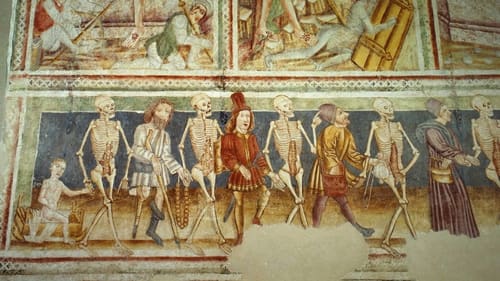
‘죽음의 무도’가 민간 신앙에 그치는 것이 아니라 중세를 지나 15세기 유럽 근세의 시작을 알리는 것이라면? 이는 프랑스의 대표적인 영화와 이미지 이론가이자 철학자, 예술평론가, 작가이기도 한 장 루이 쉐퍼의 가설이다. 히타 아제베두 고메스와 피에르 레옹 감독은 쉐퍼와 함께 프랑스와 포르투갈 곳곳을 누비며 그의 생각을 대화의 형태로 담아냈다. 또한 그의 생각을 뒷받침하는 그림과 벽화에 대한 해설은 물론, 장 르누아르와 루이스 브누엘 등의 영화 자료와 쿠르트 바일, 모차르트의 음악을 통해 관객에게 깊이 있는 인문학 강의를 듣는 것과 같은 느낌을 전해 준다.

Producer
‘죽음의 무도’가 민간 신앙에 그치는 것이 아니라 중세를 지나 15세기 유럽 근세의 시작을 알리는 것이라면? 이는 프랑스의 대표적인 영화와 이미지 이론가이자 철학자, 예술평론가, 작가이기도 한 장 루이 쉐퍼의 가설이다. 히타 아제베두 고메스와 피에르 레옹 감독은 쉐퍼와 함께 프랑스와 포르투갈 곳곳을 누비며 그의 생각을 대화의 형태로 담아냈다. 또한 그의 생각을 뒷받침하는 그림과 벽화에 대한 해설은 물론, 장 르누아르와 루이스 브누엘 등의 영화 자료와 쿠르트 바일, 모차르트의 음악을 통해 관객에게 깊이 있는 인문학 강의를 듣는 것과 같은 느낌을 전해 준다.

Director
‘죽음의 무도’가 민간 신앙에 그치는 것이 아니라 중세를 지나 15세기 유럽 근세의 시작을 알리는 것이라면? 이는 프랑스의 대표적인 영화와 이미지 이론가이자 철학자, 예술평론가, 작가이기도 한 장 루이 쉐퍼의 가설이다. 히타 아제베두 고메스와 피에르 레옹 감독은 쉐퍼와 함께 프랑스와 포르투갈 곳곳을 누비며 그의 생각을 대화의 형태로 담아냈다. 또한 그의 생각을 뒷받침하는 그림과 벽화에 대한 해설은 물론, 장 르누아르와 루이스 브누엘 등의 영화 자료와 쿠르트 바일, 모차르트의 음악을 통해 관객에게 깊이 있는 인문학 강의를 듣는 것과 같은 느낌을 전해 준다.
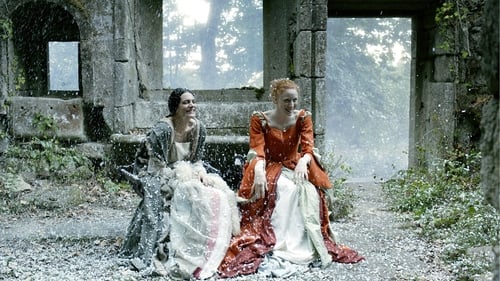
Editor
이탈리아 북부, 폰 케텐은 먼 나라 포르투갈에서 신붓감을 찾아 나선다. 신혼여행을 마치고 고향으로 돌아온 그는 주교를 물리칠 기회가 왔다는 소식을 듣곤 집을 떠나 전장으로 발길을 옮긴다. 그와 혼인한 포르투갈 여성은 고국으로 돌아가라는 남편의 뜻을 거절하고 10년 넘게 성에 머문다.

Producer
이탈리아 북부, 폰 케텐은 먼 나라 포르투갈에서 신붓감을 찾아 나선다. 신혼여행을 마치고 고향으로 돌아온 그는 주교를 물리칠 기회가 왔다는 소식을 듣곤 집을 떠나 전장으로 발길을 옮긴다. 그와 혼인한 포르투갈 여성은 고국으로 돌아가라는 남편의 뜻을 거절하고 10년 넘게 성에 머문다.

Screenplay
이탈리아 북부, 폰 케텐은 먼 나라 포르투갈에서 신붓감을 찾아 나선다. 신혼여행을 마치고 고향으로 돌아온 그는 주교를 물리칠 기회가 왔다는 소식을 듣곤 집을 떠나 전장으로 발길을 옮긴다. 그와 혼인한 포르투갈 여성은 고국으로 돌아가라는 남편의 뜻을 거절하고 10년 넘게 성에 머문다.

Director
이탈리아 북부, 폰 케텐은 먼 나라 포르투갈에서 신붓감을 찾아 나선다. 신혼여행을 마치고 고향으로 돌아온 그는 주교를 물리칠 기회가 왔다는 소식을 듣곤 집을 떠나 전장으로 발길을 옮긴다. 그와 혼인한 포르투갈 여성은 고국으로 돌아가라는 남편의 뜻을 거절하고 10년 넘게 성에 머문다.

Writer
정치적 이유로 망명을 떠나야 했던 포르투갈의 시인 호르헤는 소피아와 약 20년간 편지를 주고 받으며 우정을 나눈다. 시인 소피아 안드레센과 호르헤 데 세나가 주고 받은 실제 편지들을 바탕으로 만들어진 독특한 형식의 영화. 여러 출연자들이 각자의 공간에서 편지를 낭독하는 가운데 과거 포르투갈의 기록 영상, 뉴스 클립 등이 섞여든다. (2017 포르투갈 영화제_포르투갈의 여성 감독들)

Editor
정치적 이유로 망명을 떠나야 했던 포르투갈의 시인 호르헤는 소피아와 약 20년간 편지를 주고 받으며 우정을 나눈다. 시인 소피아 안드레센과 호르헤 데 세나가 주고 받은 실제 편지들을 바탕으로 만들어진 독특한 형식의 영화. 여러 출연자들이 각자의 공간에서 편지를 낭독하는 가운데 과거 포르투갈의 기록 영상, 뉴스 클립 등이 섞여든다. (2017 포르투갈 영화제_포르투갈의 여성 감독들)

Director
정치적 이유로 망명을 떠나야 했던 포르투갈의 시인 호르헤는 소피아와 약 20년간 편지를 주고 받으며 우정을 나눈다. 시인 소피아 안드레센과 호르헤 데 세나가 주고 받은 실제 편지들을 바탕으로 만들어진 독특한 형식의 영화. 여러 출연자들이 각자의 공간에서 편지를 낭독하는 가운데 과거 포르투갈의 기록 영상, 뉴스 클립 등이 섞여든다. (2017 포르투갈 영화제_포르투갈의 여성 감독들)

Self
Joaquim Pinto has been living with HIV and VHC for almost twenty years. “What now? Remind Me” is the notebook of a year of clinical studies with toxic, mind altering drugs as yet unapproved. An open and eclectic reflection on time and memory, on epidemics and globalization, on survival beyond all expectations, on dissent and absolute love. In a to-and-fro between present and past memories, the film is also a tribute to friends departed and those who remain.
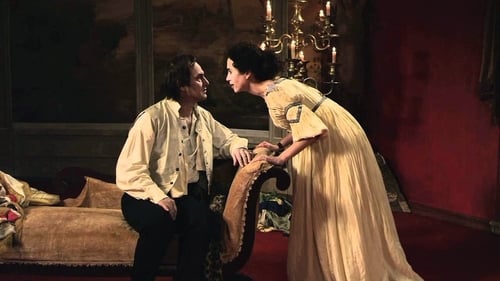
Screenplay
부유한 귀족 호베르투는 많은 여성들과 만남을 갖지만 사실 누구에게도 깊은 애정을 느끼지 않는다. 그러던 어느 날, 호베르투는 한 파티에 참석했다가 매력적인 여성을 만나 그녀의 기구하고 극적인 사연을 듣는다. 연극의 실내 무대를 적극적으로 활용한 독특한 미술, 해설자의 갑작스러운 개입 등 실험적인 연출이 돋보이는 멜로 드라마.

Director
부유한 귀족 호베르투는 많은 여성들과 만남을 갖지만 사실 누구에게도 깊은 애정을 느끼지 않는다. 그러던 어느 날, 호베르투는 한 파티에 참석했다가 매력적인 여성을 만나 그녀의 기구하고 극적인 사연을 듣는다. 연극의 실내 무대를 적극적으로 활용한 독특한 미술, 해설자의 갑작스러운 개입 등 실험적인 연출이 돋보이는 멜로 드라마.

Herself
A documentary about the world of portuguese cinema, with interviews with some critics and directors.

Producer
A story about art and educated men, and how their art and culture reveal themselves useless in the face of the harsh realities of the 20th century life.

Writer
A story about art and educated men, and how their art and culture reveal themselves useless in the face of the harsh realities of the 20th century life.

Director
A story about art and educated men, and how their art and culture reveal themselves useless in the face of the harsh realities of the 20th century life.

Editor
Joáo Bénard da Costa, director of the Portuguese National Film Archives [deceased in 2009], interviews the dean of contemporaneous film directors [96-years-old then]. Two humanists of different philosophical backgrounds, both with their long, entire lives dedicated to culture in general (music, painting, literature) and to film in particular, discuss freely, sometimes haltingly, the director's power as a creator or a magician, the philosophy beyond particular scenes in classic movies, film technique, the importance of color, sound and music to films, art versus entertainment, and much more. Their talk takes place in a museum room, seating in front of "The Annunciation" (a 1510 oil painting by João Vaz, a Portuguese artist), which eventually leads to a discussion of 'Leonardo da Vinci', and the relationship between a trend-setter master and his disciples.

Idea
Joáo Bénard da Costa, director of the Portuguese National Film Archives [deceased in 2009], interviews the dean of contemporaneous film directors [96-years-old then]. Two humanists of different philosophical backgrounds, both with their long, entire lives dedicated to culture in general (music, painting, literature) and to film in particular, discuss freely, sometimes haltingly, the director's power as a creator or a magician, the philosophy beyond particular scenes in classic movies, film technique, the importance of color, sound and music to films, art versus entertainment, and much more. Their talk takes place in a museum room, seating in front of "The Annunciation" (a 1510 oil painting by João Vaz, a Portuguese artist), which eventually leads to a discussion of 'Leonardo da Vinci', and the relationship between a trend-setter master and his disciples.

Director
Joáo Bénard da Costa, director of the Portuguese National Film Archives [deceased in 2009], interviews the dean of contemporaneous film directors [96-years-old then]. Two humanists of different philosophical backgrounds, both with their long, entire lives dedicated to culture in general (music, painting, literature) and to film in particular, discuss freely, sometimes haltingly, the director's power as a creator or a magician, the philosophy beyond particular scenes in classic movies, film technique, the importance of color, sound and music to films, art versus entertainment, and much more. Their talk takes place in a museum room, seating in front of "The Annunciation" (a 1510 oil painting by João Vaz, a Portuguese artist), which eventually leads to a discussion of 'Leonardo da Vinci', and the relationship between a trend-setter master and his disciples.

Herself
A 58 minute documentary about the life of João Bénard da Costa.

Editor
Arriving in a hotel in the city of Faro, a couple learns there are no available tables left. When another couple agrees to share a table, they spark a conversation on the city’s history, unfolding the tales of King Afonso III, who betrays his wife, and of a Moorish woman, who betrays her father.

Director
Arriving in a hotel in the city of Faro, a couple learns there are no available tables left. When another couple agrees to share a table, they spark a conversation on the city’s history, unfolding the tales of King Afonso III, who betrays his wife, and of a Moorish woman, who betrays her father.

Producer
The experimental nature of this film explores the memories of a young love.

Writer
The experimental nature of this film explores the memories of a young love.

Director
The experimental nature of this film explores the memories of a young love.
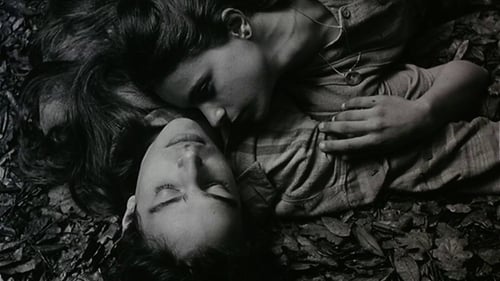
Screenplay
An impossible love. Two young people who love each other. Vera and João can’t find in this life the space, time, or identity to resolve their love story.

Director
An impossible love. Two young people who love each other. Vera and João can’t find in this life the space, time, or identity to resolve their love story.
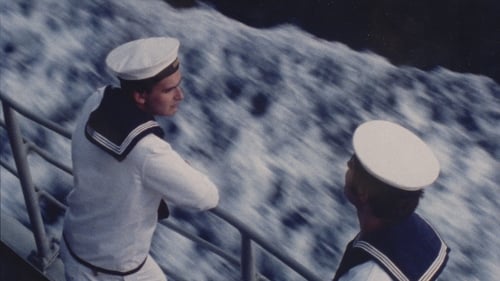
Writer
Freely based on Gide ('Paludes') and Hawthorne ('Wakefield'), this is a film about a writer who never wrote anything and who blows at nightfall the breath of frost. The poem by Carlos Queiroz to which the above sentences belong is not cited in 'O som da Terra a Tremer', but the atmosphere is that, between written letters never received. Fiction within fiction, stories within stories, like those Chinese boxes in which there is always one inside another. Or the two margins of the same river, always being lateral.

Director
Freely based on Gide ('Paludes') and Hawthorne ('Wakefield'), this is a film about a writer who never wrote anything and who blows at nightfall the breath of frost. The poem by Carlos Queiroz to which the above sentences belong is not cited in 'O som da Terra a Tremer', but the atmosphere is that, between written letters never received. Fiction within fiction, stories within stories, like those Chinese boxes in which there is always one inside another. Or the two margins of the same river, always being lateral.

Set Decoration
A mentally unstable woman and her son move to a sprawling mansion in Portugal to grow roses.

Costume Design
A sickly young girl is given away by her father to a childless couple. Twenty years later, she marries her adopted father.
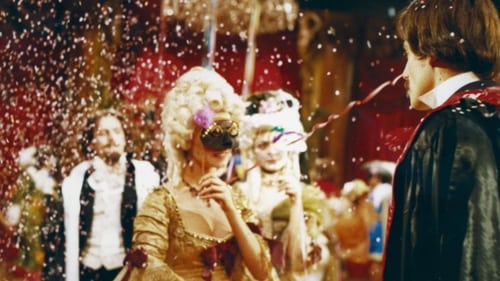
Costume Design
강박적이고 이기적인 사랑의 광기를 절제된 형식 속에 밀어붙이는 극단의 러브스토리. 브라질의 독립으로 포르투갈 국정이 불안한 시절, 호세 아우구스토와 카밀로는 프란시스카를 두고 삼각관계를 이룬다. 프란시스카는 귀족 호세 아우구스토와 결혼하지만 정작 그의 사랑은 고문에 가까운 치기 어린 것으로 드러난다.

Gothic film in a monastery, where sensual monks murder the children they receive, with images of fantastic, painted from the author own painting and also from the Hammer films and the Saxon plastic tradition of romanticism.

Assistant Director
Gothic film in a monastery, where sensual monks murder the children they receive, with images of fantastic, painted from the author own painting and also from the Hammer films and the Saxon plastic tradition of romanticism.

An “artist film” that crosses Karl Martin, Martin Heidegger and the Communist Party’s Manifesto.

Assistant Director
An “artist film” that crosses Karl Martin, Martin Heidegger and the Communist Party’s Manifesto.

Assistant Director
This is one of Noronha da Costa's films in which the "fictional" component is most visible. D. Jaime or the Portuguese Night, like the rest of Noronha da Costa's films, is part of the gothic films (Terence Fisher's work was one of his great influences), and in it he shows the different variations around the "specular bodies", which evolve into luminous magic and into sensual and sensory incandescence. At the same time, we witness a series of ironic and erotic, or historical, views of wicked virgins and laughable sadists, all resurrected from German and British romanticism, while the scenery is no longer Portuguese.











